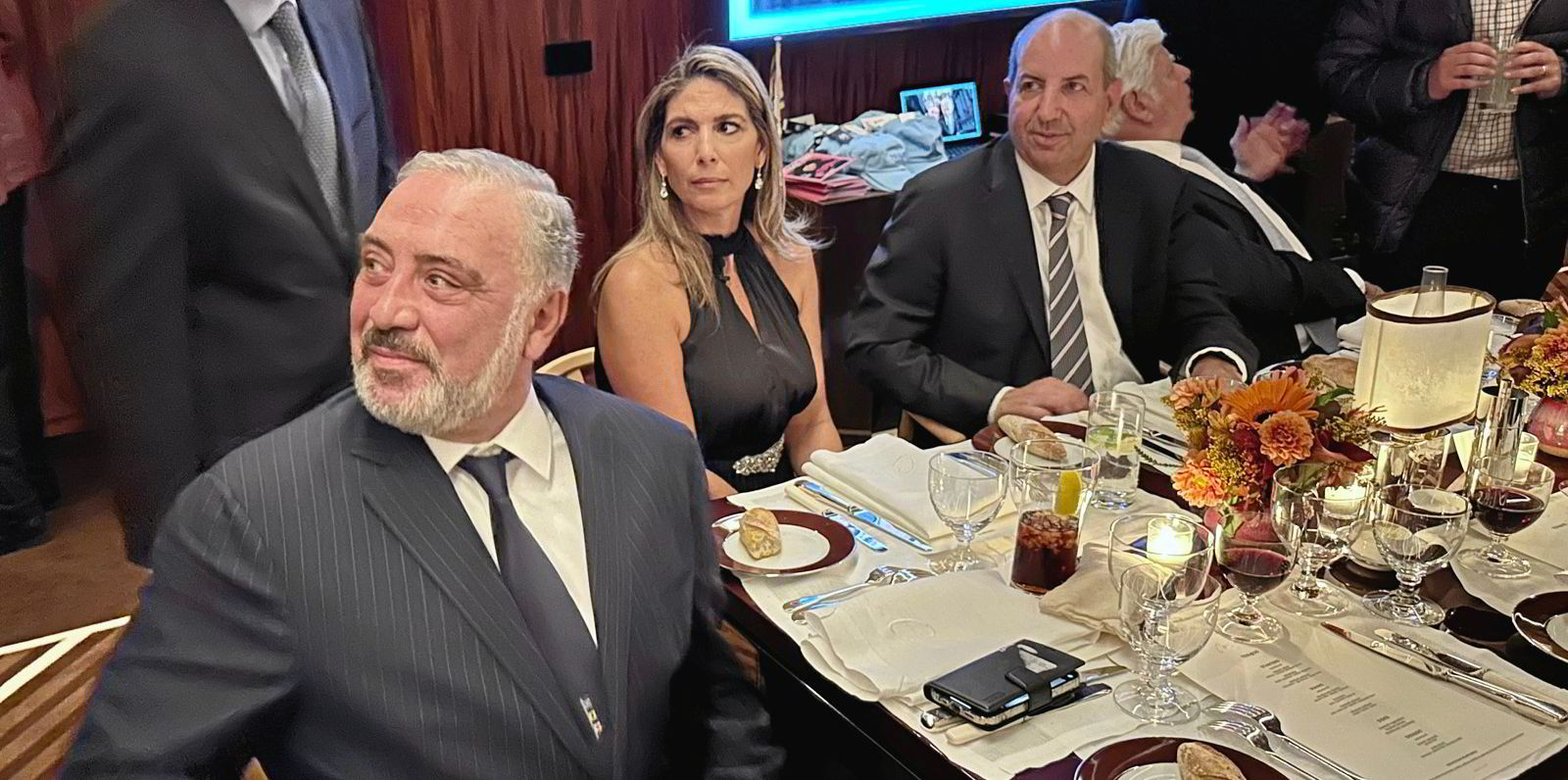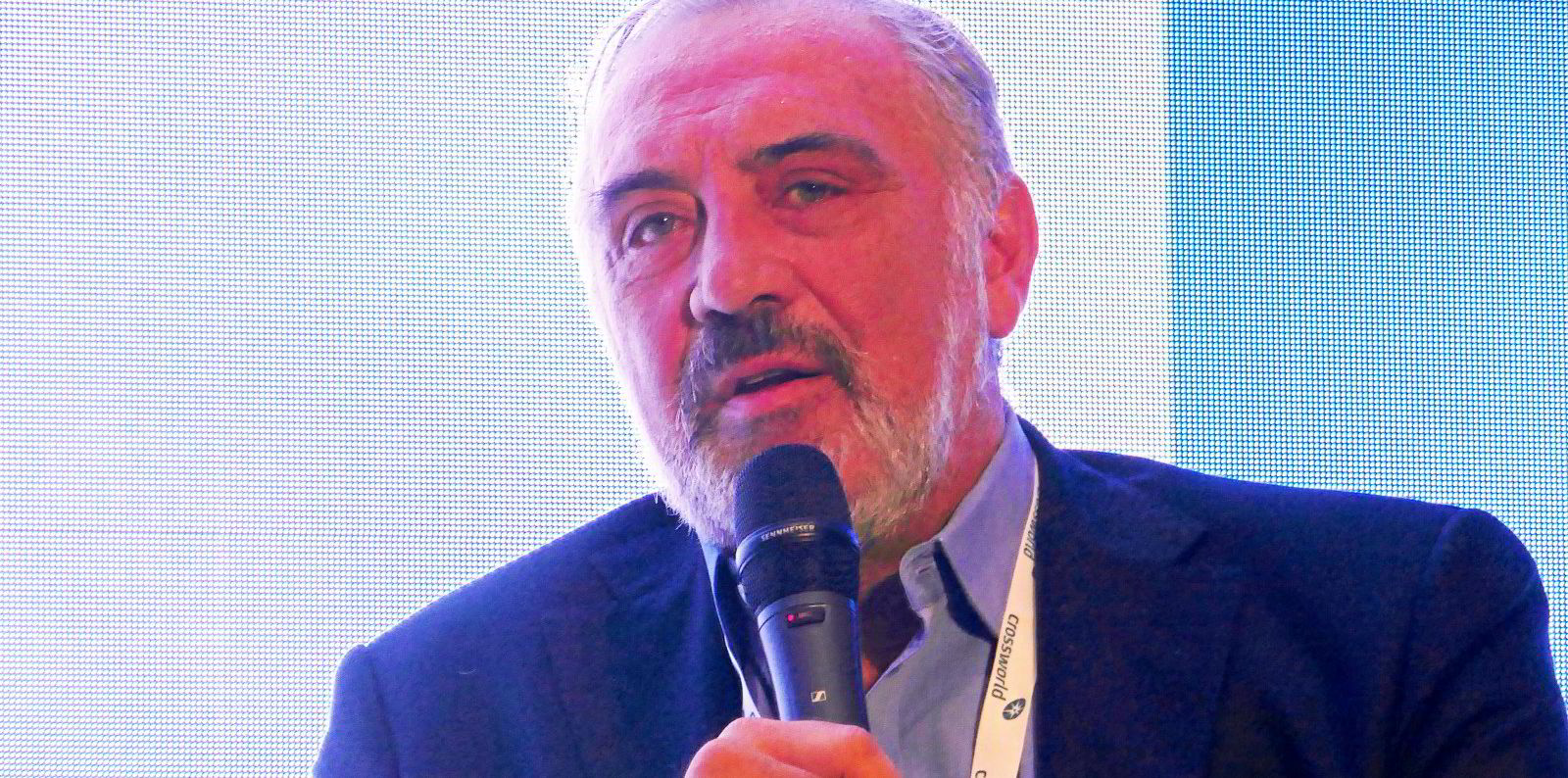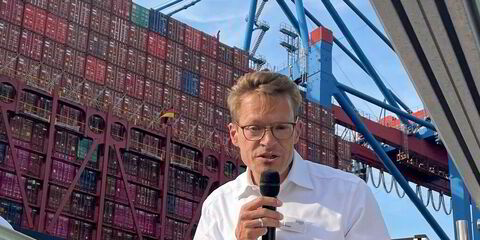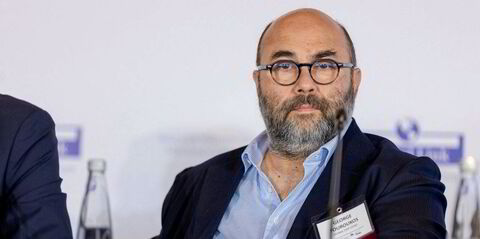Greek owner Tsakos Energy Navigation already has a fine corporate logo, a familiar stacked trio of nautical flags.
But to hear chief executive Nikolas Tsakos tell it last week in New York at a dinner ceremony marking the owner’s 30 years as a public company, perhaps the tanker owner should embrace its history and switch the logo to a black swan.
“TEN has been a product of crisis,” Tsakos told a packed room of guests at the posh 39th-floor club Coco’s as guests prepared for dinner against a nighttime backdrop of Central Park.
That might not have been the expected lead-in to a celebration of TEN’s longevity as a public company, a life that began in 1993 on the Oslo bourse and gathered steam with its listing on the New York Stock Exchange in 2002.
But as Tsakos got rolling with examples, one had to appreciate his point.
The Oslo listing came as tanker owners were still grappling with the fallout from the Exxon Valdez spill and the implementation of double-hull regulations through the Oil Pollution Act of 1990.
A financial crisis hit Asia in 1997, followed by terrorist attacks on the World Trade Center in 2001 and the ensuing chill on world trade. Next up was the world financial crisis of 2008.
“And here today, we’ve had the triple whammy: Covid in 2020, and on top of that crisis, the war in Russia and the events in the Middle East just recently, which are still very hard to analyse and comprehend,” Tsakos told the room.
At this point, guests could be forgiven for checking to be sure black swan was not on the dinner menu.
But the point is that TEN has pulled through it all, been resilient, kept going, and kept growing.
It is the oldest Greek shipowner to list on the NYSE and still be operating today.
That, combined with its even earlier roots in Norway’s capital, was something for the company to celebrate.
When it comes to Greek shipowners, the Tsakos family is undoubtedly one of the bluest of that country’s blue-bloods.
Nikolas Tsakos’ father, Captain Panagiotis Tsakos, founded Tsakos Shipping & Trading in 1970 and traces his roots to the Greek island of Chios.
But for Nikolas, the son, New York has always been another home, from his school days at Columbia University to memories of the company’s first office on Rector Street downtown, steps away from the stock exchange.
Stefan Jekel, head of international listings at the NYSE, when introducing Tsakos, said: “You are deeply rooted here in New York.
“You’ve been a pioneer here in the maritime sector. You’ve been a trailblazer back to 1993 and in New York back to 2002.”

Those decades in the capital markets have allowed TEN to grow from an initial fleet of 10 to today’s stable of 66 tankers, including newbuildings under construction, spread across categories of clean and dirty tonnage. Its market capitalisation approaches $670m.
Streetwise has been around TEN’s New York listing from day one and can certainly appreciate its ability to navigate all those black swans and remain afloat today.
Unlike many peers, there were no Chapter 11 bankruptcy reorganisations or complicated financial bailouts outside the courts.
But TEN’s story is incomplete without also saying this: from the beginning, there have been questions about whether TEN’s stock was as blue chip as TEN the company.
We appreciate a time of celebration and are here to praise Nikolas Tsakos, not bury him. So, we’ll keep the discussion on the point relatively brief.
TEN served as a pioneer, establishing a template for dozens of other Greek owners who came to New York.

It is just that some capital markets purists question from time to time whether that is entirely a good thing. TEN also showed how to set up a company laden with related-party conflicts and public payouts to private management interests that, over time, have arguably proved a drag on the stock.
This has often found TEN trading at valuations well below its public tanker peers, and it continues to be the case.
NAV an elusive target
The stock was hovering near $22.50 per share this week, against what investment bank Jefferies identified in September as a net asset value of $60. That valuation of 31% of NAV compares to an 80% average for the tanker peer group.
On the governance front, Webber Research & Advisory principal Michael Webber has since 2016 published an annual “scorecard” of governance practices that considers factors like related-party conflicts, board independence and, more recently, emissions disclosures.
TEN has regularly featured in the bottom quartile of his tables, from a field that started at some 50 public companies and expanded to 64. TEN finished 61st in Webber’s most recent rankings in July.
One analyst says the peak tanker market of 2005-2007 was the only time he could remember TEN trading at or above NAV.
The stock has not been properly valued in his view since the financial crisis, with limited market capitalisation, trading liquidity and conservative charter coverage among the factors he sees stanching investor interest.
So we will say quite simply that along with all that is good about the Tsakos’ journey through the capital markets, these things are part of the story as well. We’ll leave the rest of that debate for another time.
While Nikolas Tsakos did not directly raise such matters in his celebratory speech, he did at least indirectly surface the issue of TEN’s share valuation, and he did so with a characteristic sense of humour.
“I think TEN has been very exciting and successful,” Tsakos said. “I think our valuation could have been better if we called it ‘TEN.com or TEN Artificial Intelligence.’ But I think we will be working on that.”
More ship finance news
China’s biggest ship lease finance company says it has an appetite to fund projects from shipowners for vessels driven by lower carbon emission fuels. Click here to read.
Denmark’s DFDS has sold three freight ro-ros to Navigare Capital in a leaseback deal. Navigare is paying DKK 1.5bn ($212m) for the 6,690-lane-metre Flandria Seaways, Humbria Seaways (both built 2020) and Scandia Seaways (built 2021). Click here to read.
A US investment bank sees Connecticut-based Eagle Bulk Shipping falling to a bigger-than-expected loss for the quarter past, and returns from its exhaust-gas scrubbers are part of the reason. Click here to read.




